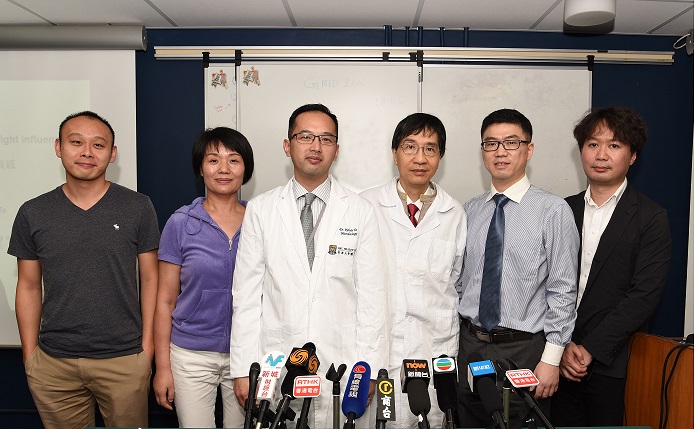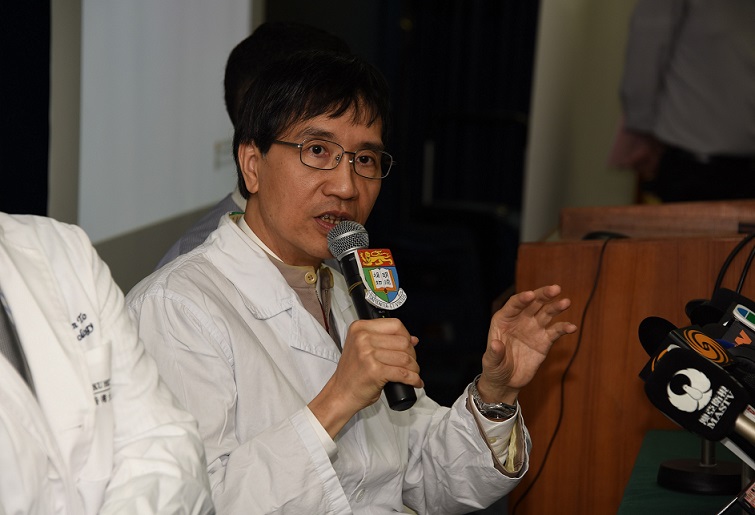Virus genes and proteins were successfully used as antiviral drug testing
HKU research team achieves vital breakthrough to fight influenza virus infection
15 Jun 2018
Influenza virus infection causes many deaths every year. The presently available antiviral drugs are not that effective for treating influenza and resistance can develop rapidly. A team at The University of Hong Kong (HKU) led by Professor KY Yuen, Dr Hanjun Zhao and Dr Kelvin To of the Department of Microbiology, has developed a novel strategy in the prevention and treatment of influenza virus infection.
US provisional patent application has been filed for this cutting-edge technique. The finding is now published in a leading scientific journal Nature Communications. (link to the publication)
Research Methods
HKU scientists designed short defective fragments of relatively conserved influenza virus genes (DIG3) which can interfere with the correct replication of the influenza virus genome and hence inhibit the growth of influenza virus. The team then designed a new gene delivery system called TAT-P1, which was constructed by fusing TAT with P1. TAT can deliver the DIG3 into the host cells while P1, which was also designed by the team, can exert antiviral activity by inhibiting the acid production inside the endosomal vacuole which is essential for the influenza virus to enter from the endosomal vacuole into the cytoplasm of infected cells.
When administered to the airway 1-2 days before, or 6 hours after infection with an avian influenza virus or a 2009 pandemic influenza H1N1 virus, DIG3/TAT-P1 can reduce body weight loss, improve survival, and decrease the amount of influenza virus in the lung. This shows that DIG3/TAT-P1 is effective for both prophylaxis and treatment.
Significance of the study
This is the first time that defective interfering genes have been shown to protect mice from influenza virus infection. The major advantage of using defective interfering genes instead of defective interfering virus is that the latter may result in novel virus strains which can infect humans. Another novelty in this study is that TAT-P1 is the first gene delivery system which also possesses antiviral activity against influenza virus. The findings in this study have important implications for the future treatment of influenza and other virus infections.
Members of the research team include: Professor Yuen Kwok-yung, Henry Fok Professor in Infectious Diseases, Chair Professor of Infectious Diseases, Dr Kelvin To Kai-wang, Clinical Associate Professor, and Dr Zhao Hanjun, Post-doctoral Fellow, of the Department of Microbiology, Li Ka Shing Faculty of Medicine, HKU.

Group photo of the research team, members include Professor Yuen Kwok-yung (third right), Dr Kelvin To Kai-wang (third left) and Dr Zhao Hanjun (second right).

Professor Yuen Kwok-yung said that the short defective fragments of relatively conserved influenza virus genes (DIG3) can interfere with the correct replication of the influenza virus genome and hence inhibit the growth of influenza virus.
Media enquiries
Please contact Li Ka Shing Faculty of Medicine of The University of Hong Kong by email (medkefa@hku.hk).
